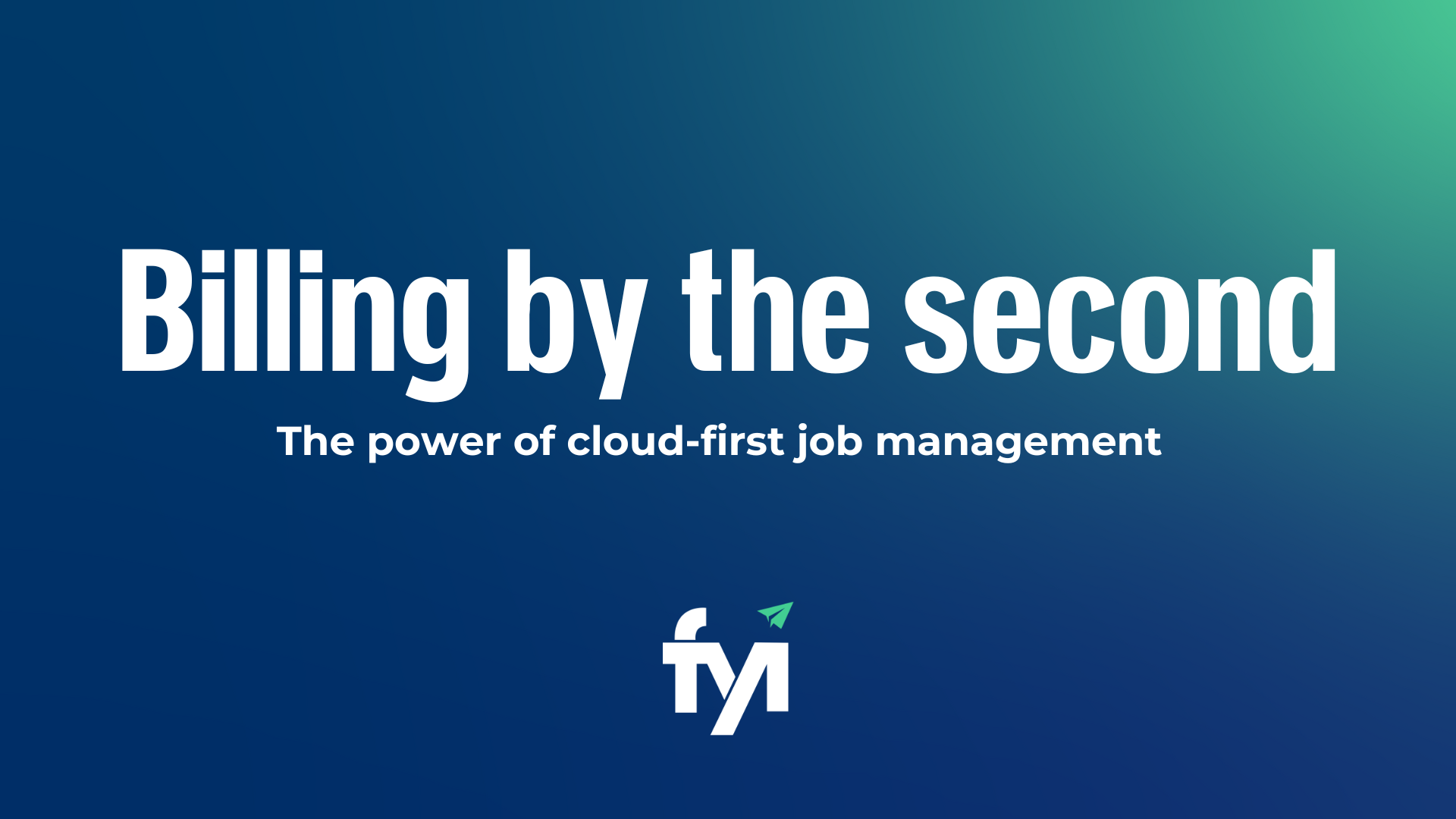
Billing by the second – The power of cloud-first job management
What if there was a simpler way to track your
If you charge clients by billable hours, you know the challenges of recording time spent on individual jobs.
You understand the need for careful records if disputes or mistakes arise. You’ve felt the frustration when billable time goes unrecorded by forgetfulness, confusion or simply lack of space in the day.
Combining an essential task with outdated processes is a recipe for disaster. Thankfully, working in the cloud presents an exciting alternative that might hold the answer.
workday?
The (not so) hidden cost of poor job management
Job management is a crucial element of successful workflows for businesses with multiple clients.
Used to track ongoing and completed jobs, record time and client interactions and for reference during invoicing periods, a job management system helps businesses track how much work they have done and agreed to for each client, and how much to bill them for.
Time is a major challenge for manual job management, which may involve entering data into a shared spreadsheet.
Lost or unrecorded time can ultimately result in unpaid work from your business and frustration for your clients, who may not receive the correct invoice straight away.
Over time, this can build up, meaning substantial costs are going unbilled and unpaid because of poor recording.
The time spent recording billable work is also a significant challenge in itself.
While estimates vary wildly, recent data suggests that workers at all levels of seniority spend around one day out of every working week doing administrative tasks.
Naturally, this does not only include recording tasks and client management, but it is indicative of a need to reduce time spent on administrative tasks wherever possible.
A cloud-based solution
A cloud-first system which prioritises simplicity, collaboration and streamlined time management is the answer to many of these previously insurmountable issues.
The FYI task management integration enables easy tracking of individual jobs within a client area, using highly visual displays to make sure nothing falls through the cracks.
Across the breadth of our research, we have identified several key features that truly make a difference to job tracking to reduce error and save time, including:
- Tracking time against budget and time estimates
- Adding comments to individual jobs
- Including documents in job and client folders
- Seamless movement between client and job areas
- Semi-automated time sheet creation
Saving an estimated 15 minutes per day, the solution we’ve developed by understanding client needs addresses the challenges of traditional job management processes.
Developing your workflows
Cloud solutions for job management are most effective when integrated into effective workflows that optimise the use of even a small amount of time.
Adopters of our solution, for example, have benefitted hugely from a range of productivity tools and process automation to assist with manual tasks.
For maximum effectiveness, job information cannot simply be stored in the cloud. It must be entered as efficiently as possible and, ideally, linked to a billing and invoicing system to support the automated creation of invoices.
The ability for individuals to forget or omit records should also be minimised to prevent lost time.
As an example, imagine a team reviewing a system that used cloud-based storage of job management information, but the user interface and entry system itself were outdated and difficult to use.
For junior staff members working on half a dozen client accounts and with time at the end of each day to record their work, the process could add up to 20 minutes per day.
For more senior staff members, working across the full range of clients and with time to only update the system once or twice per week, the process could take more than an hour each time – which itself had to be recorded in the system as non-billable hours.
This example shows that careful selection of the right platform is just as important as implementing any form of technology.
The reporting solution
Working out how best to streamline your workflows can be addressed by an actionable reporting feature.
With the ability to create timesheet reports, you can identify bottlenecks and areas where current systems aren’t quite working for you.
Beyond that, we’ve also found that clients can streamline time recording by identifying problem areas and reporting on them.
In short, the right job management software goes beyond simply tracking your work. It provides its own way of working that prioritises efficiency and collaboration between team members, vastly reducing the room for error or poor record keeping.
Make the next step
Ready to embrace a new way of recording time? You are, trust us.
FYI can deliver an alternative to manually recording time and jobs in a spreadsheet or off-line system, thereby removing or reducing the risk of lost time, errors, miscommunications or even duplicated work.
Ultimately, our job management solution is delivering efficiency to an essential aspect of your business processes.
Able to integrate with productivity tools, contact centres and systems such as Xero, our job management software is scalable and accessible, ready to give you more time to spend on client-facing work that makes a difference.